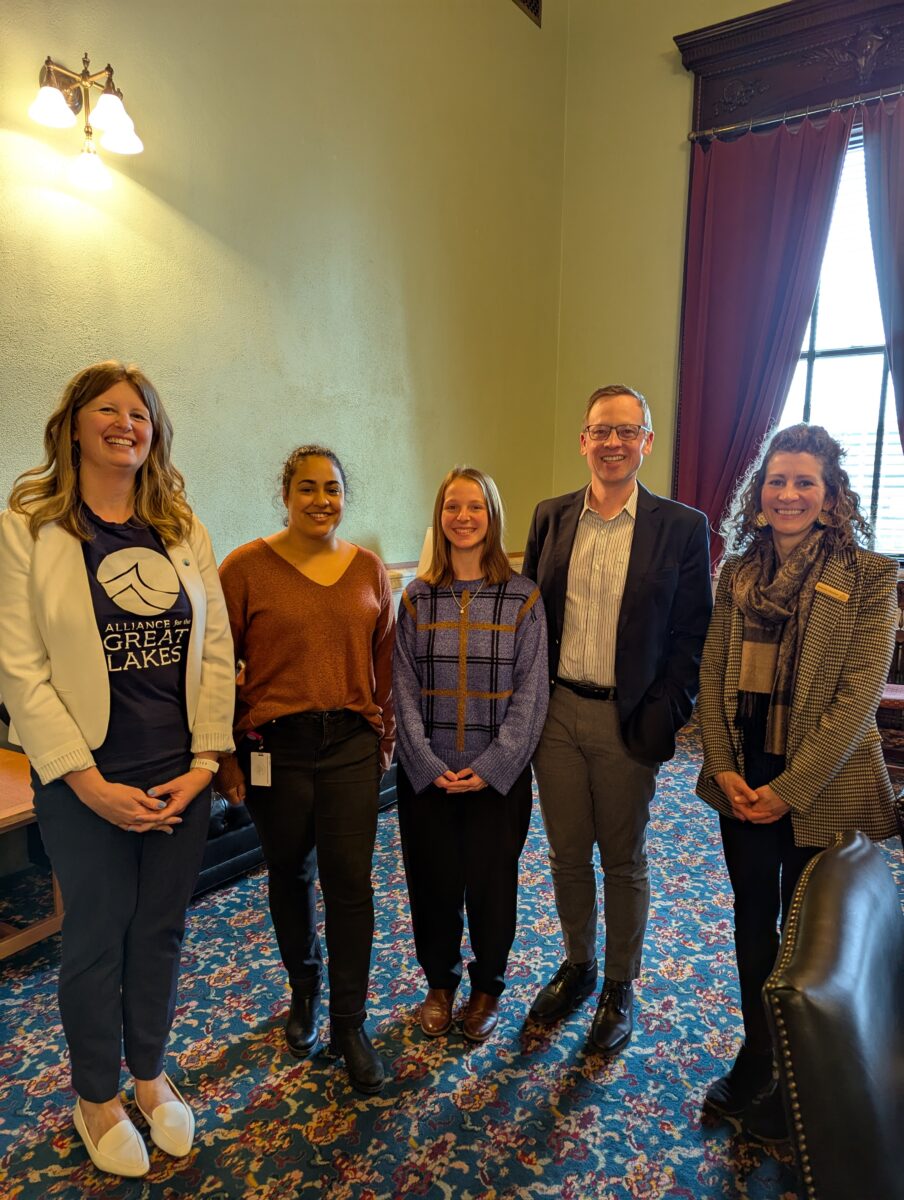
On Thursday, January 30, the Alliance for the Great Lakes, alongside our partners—The Nature Conservancy, Ohio Ecological Food and Farm Association, The Junction Coalition, and the Ohio Environmental Council (OEC)—came together at the Ohio Statehouse to address the state’s most pressing water issues. Water Advocacy Day was a powerful opportunity to engage with lawmakers, share policy solutions, and advocate for clean, safe, affordable water for all Ohioans.
During the event, Helena Volzer, the Alliance for the Great Lakes’ Senior Source Water Policy Manager, led an insightful presentation on the critical impacts of agricultural pollution. She highlighted how excessive nutrients—especially nitrogen and phosphorus from fertilizers and manure—continue to fuel harmful algal blooms across the Great Lakes, posing serious risks to public health, aquatic ecosystems, and local economies. The financial burden of this pollution is often passed down to communities, increasing drinking water costs and placing an unfair strain on low-income households.
“Agricultural pollution isn’t just an environmental issue—it’s a public health and economic issue,” Volzer emphasized. “If we don’t act now, Ohioans will continue to bear the rising water treatment costs while ecosystems suffer.”
Ohio ranks second in the nation for the number of lead service lines, and many older homes still contain lead-based plumbing. Efforts are underway to eliminate lead from drinking water systems, but progress remains slow. Combined with the challenges of harmful algal blooms and agricultural runoff, stronger policies and funding solutions are urgently needed.
Throughout the day, advocates and policy leaders met with state representatives, senators, and aides to push for solutions to prioritize clean water. These discussions emphasized the importance of critical funding for conservation programs such as the H2Ohio program, Ohio’s flagship program to address water quality issues including agricultural runoff, household sewage treatment and wastewater infrastructure, wetland creation, and lead service line replacement. The Alliance and its partners urged lawmakers to strengthen policies that hold polluters accountable, increase investment in clean water infrastructure, and ensure water affordability remains a top priority.
The fight for clean water continues, and Water Advocacy Day was a crucial step in the right direction. Every Ohioan deserves safe, lead-free, and affordable drinking water.
